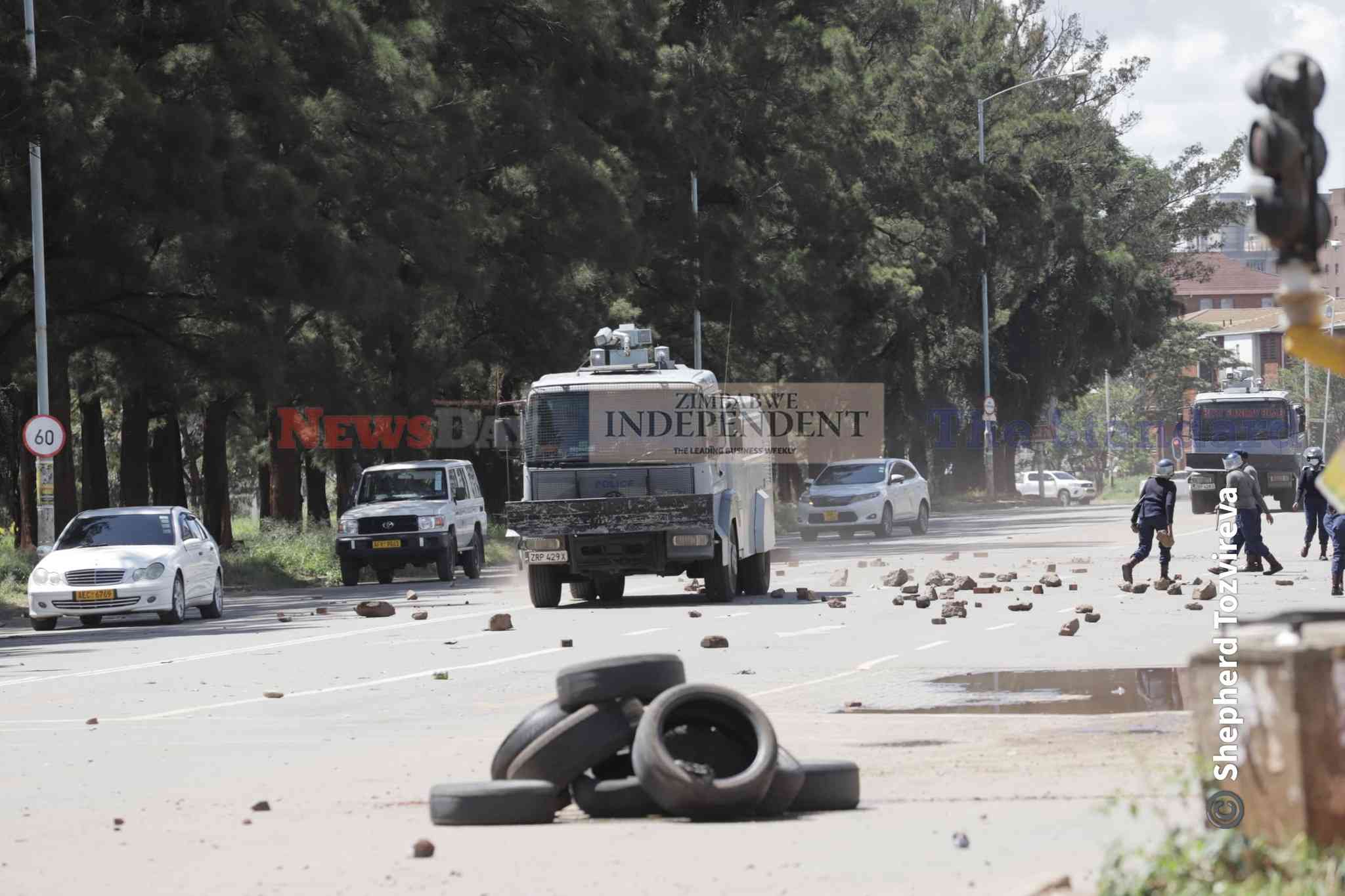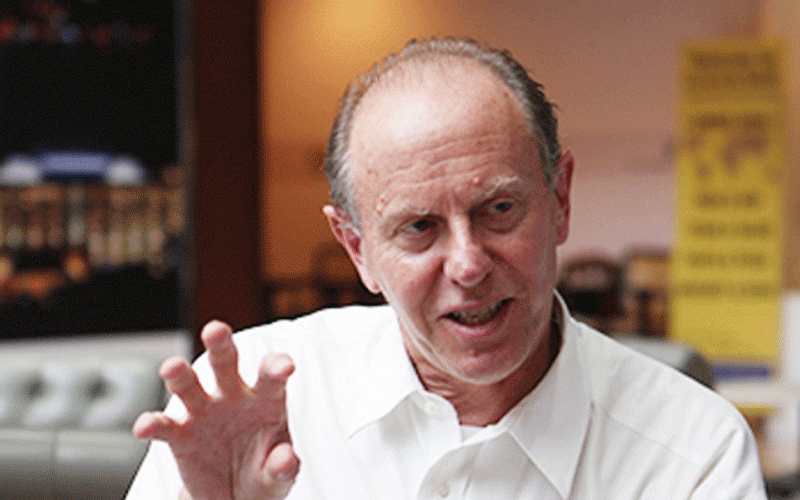
IN so many ways, the bravado of the March 31 movement (M31) organisers reminds me of the January 6 Capitol Hill riots in the United States.
That both were going to fail was not in doubt, but they changed the politics in both countries for good.
War veteran and former intelligence officer, Blessed “Bombshell” Geza, put his life on the line by coming out and calling on President Emmerson Mnangagwa to step down with immediate effect or face crippling mass protests.
Geza accused Mnangagwa of incompetence, corruption, nepotism and far worse of creating a dynasty and wanting a life-presidency.
This was brazen to say the least because it came at a time when Mnangagwa loyalists had started a campaign to extend his presidential term to 2030.
It is not very clear and still remains unclear why exactly they need these two years.
Political analysts have thrown a number of reasons, ranging from reneging on a gentleman’s agreement with his deputy Constantino Chiwenga to succeed him to waiting for one of his chosen successors to gain amble support in the party.
Those with half a brain have tried to tie the term extension to giving Mnangagwa time to complete Vision 2030 and its attendant major projects.
- Mr President, you missed the opportunity to be the veritable voice of conscience
- ED to commission new-look border post
- Zanu PF ready for congress
- EU slams Zim over delayed reforms
Keep Reading
The folly of the argument is that capacity to lead in Zanu PF is only located in the person of Mnangagwa.
Geza’s bold coming out and trying to stop the 2030 agenda rattled Mnangagwa and his acolytes.
Zimbabwe saw the reshuffling in the security sector as well as the muzzling of the media (Blessed Mhlanga now in pre-trial detention for over a month) simply for giving Geza a platform to articulate his issues to the citizens.
There was heightened surveillance of citizens, roadblocks on major highways and in some circumstances, unofficial curfew two days prior to the mass protests.
The State once again in its short history was ready to use brute force to secure Mnangagwa’s position.
Geza even gave Zimbabweans a catchy slogan: “The only 2030 he will see is the time on a watch.”
It should not be mistaken that Geza and others trying to block the 2030 agenda are doing it as an escalation of succession fights in Zanu PF.
There is nothing national about this or some solid ideological grounding for the calls, except that Zimbabweans are entrapped in politics of personalities.
It is clear that there are others who support the move to block the 2030 agenda.
These include civil society and opposition political parties.
They argue that Mnangagwa and his supporters should respect the Constitution, which clearly says a president should only serve two terms of five years each.
The mass protests did not succeed, except for a few pockets of demonstrators.
It largely became a national stayaway.
Its impact on Zimbabwe’s fragile economy was huge, but no one is ready to talk about the numbers.
However political, the message was loud and clear — the 2030 agenda is widely opposed by a cross-section of the citizens.
Mnangagwa has not issued a public statement on the issue, but it is clear that soon, there would be a strong backlash on the organisers.
The late former President Robert Mugabe once said Mnangagwa does not forgive — this would be a test.
The backlash may include internal crushing of dissent in Zanu PF or even put the country on a verge of a state of emergency.
Mnangagwa craves power and he will likely do anything to secure it.
However, like the Democrats in the US backlash on Donald Trump and his supporters, this may embolden those opposed to Mnangagwa and rally them together for a perceived grievance, thus making the 2028 general election the key political battleground.
Will those who have been in the shadows against the 2030 agenda come out?
It is a matter of time before it comes out openly if they have both the spine and stomach for a bruising mortal electoral combat.
If Geza and his supporters or those he fronts are successful, Zimbabwe will enter a period of retributive politics.
Mnangagwa and his supporters will be exposed and live in fear for the greater part of their lives or even go into exile.
This is not new. We witnessed it post the November 2017 military coup.
Key players in the G40 faction such as Paddy Zhanda, Saviour Kasukuwere, Jonathan Moyo, Patrick Zhuwao, Many Chimene and Walter Mzembi went into exile.
Those who remained like Ignatius Chombo, Walter Chidhakwa and Ray Kaukonde kissed goodbye to their political careers and have slid into the shadows.
It should be remembered that post the coup, a new breed of politically-connected businessmen and women emerged.
Mostly, they feed from State procurement tenders.
The next three years to the general elections will be interesting both politically and economically.
There would be a rearrangement of both political and business chairs.
However, like November 2017, it would be the military that will be the decisive factor if they choose to enter the fray.
Otherwise, there would be lots of bloodletting and nights of long knives from now going forward.
Opposition parties, for the second time in a decade, will play the bridesmaids role again, unless they reorganise and have clear issues that they want to address — a political platform.
For now, they are still consumed by their political ego fights to the detriment of serious political organising.
Those who were sacrificed in the January 6 Capitol Hill riots are now out after Trump triumphed in the November 2024 presidential race and gave them a blanket pardon.
It’s not clear what will happen here for the foot soldiers of the political gladiators.
In 2009, Mugabe gave a blanket amnesty to those involved in the 2008 election violence.
Whichever way it plays now, violence and political chicanery will be on the menu as we move towards 2028.
It will be a question of who has solid political resolve — and who gets the support of the boys in uniform — and the future will be theirs to shape.
- Paidamoyo Muzulu is a journalist based in Harare. He writes here in his personal capacity.










